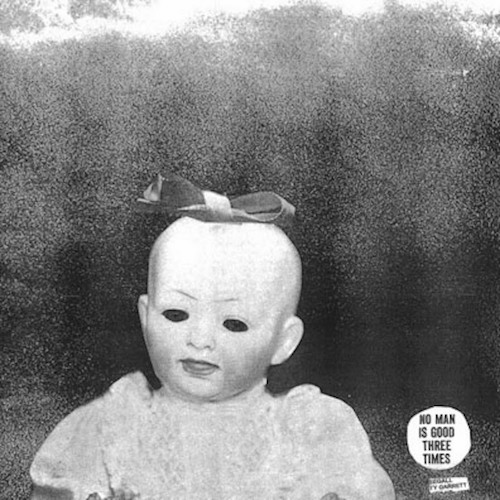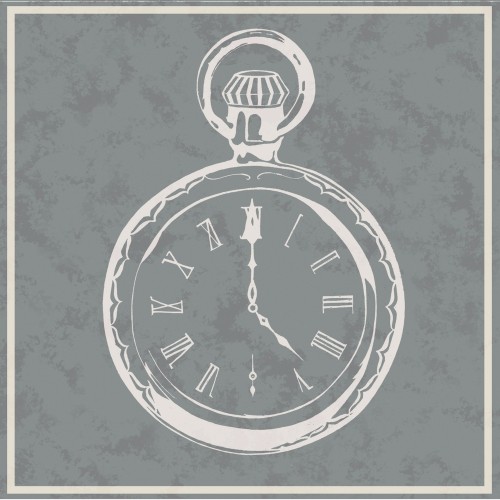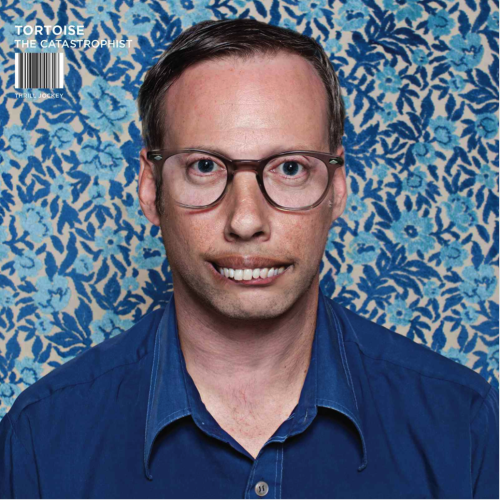 Release Date: June 18, 2013
Release Date: June 18, 2013





“Might just let you meet ‘Ye.” – Jay-Z, “N*ggas In Paris”
It is no coincidence that Jay-Z’s next album, the magnanimously titled Magna Carta Holy Grail, is coming out on June 24. The serendipity is not in the specific date, nor the bizarre decision to partner with Samsung to release the record early; no, serendipity lies in the six day interval between Sean Carter’s record release and the unceremoniously monstrous drop of Kanye West’s sixth studio album, the grating and belligerent Yeezus.
Carter and West have had their differences, the most public of which might be the unfathomable beef over who did songs with Coldplay first. And these scuffles hardly compete with the tacked-on studio nonsense of “Kanye West vs. 50 Cent” preceding the release of West’s worst record, Graduation.
But the parallelism of Magna Carta Holy Grail and Yeezus deserves to be pointed out, simply because Yeezus would be an almost impossible album to promote, were it not for the inexplicable artist who has created it. Whether their beef is constructed or a real sibling-style rivalry, only one man could make Jay-Z rhyme about being a glorified doorman.
Yeezus makes sense as a single-less album—at best, there’s one song that could halfway pose as a single (“Black Skinhead” which, given the title, probably isn’t the best choice anyway). But to buy into West’s narrative that the album is without pretense or marketing is to blindly decide that Kanye would never lie to the listener when he has repeatedly done so for the past decade.
Yeezus’ inception is classic art school dropout schlock—Important Art should be presented Naturally (note the caps). Never you mind that Kanye has been shelling out for projectors across the world to present his first “non-single,” “New Slaves.”
But such is the reality when dealing with a miscreant, hedonistic, predatory 808 savant like Kanye West. Yeezus crawls from the depths of West’s pscyhe like the mutant anti-My Beautiful Dark Twisted Fantasy, a statement on what could’ve happened had West not labored so intensely over the finished product of his masterpiece.
Yeezus is no masterpiece; it’s closer to Metal Machine Music or Brian Wilson’s interminable Pet Sounds sessions. Despite West’s insistence to the New York Times, and completely counter to the purpose of his late in the game editing session with Rick Rubin, Yeezus is anything but minimal. “New Slaves” is the simplest track, yet it bursts from plinking synth to arena rock Auto-Tune freak out in a moment, then back again, a decidedly complex and artful turn that belies the marketing West has been doing for the record.
West’s marketing has been subtly focused on proving one point that, to most who passingly acknowledge his music, has been decided for years—that Kanye West is a True Artist. One of Kanye’s first true gifts was the somewhat true notion that he was always being conspired against, always being held back by forces either more powerful or more diabolical than he. Yet years after he’s established a foothold as rap’s true 21st century pop-pioneer, West is still bitching about white people hanging out in the Hamptons who are ignoring him out of spite.
It’s this insecurity that drove him to create 808s and Heartbreak, to which Yeezus is probably most closely related as a work of pure id. It’s this insecurity that drives him to constantly scream about how many married white women he’s bedded, all for the sake of getting back at his tormentors. It’s the same insecurity that drives him to create a David Fincher-in-Seven-like dungeon beat on “I’m In It,” complete with moans and talk of “eatin’ ass.”
It’s a stretch to say Kanye is not confident, but not to say that Yeezus’ rampant displays of power are at least half chest-beating that’s meant to intimidate his contemporaries.
Although to be fair, it’s quite the goddamned chest-beating. While Kanye’s verses have never been the most solid parts of his game—he gets lost in wordplay and is fine letting the beat swallow him on “Bound 2”—West can more than likely claim to be the best beat man in the game. Or at least the best collagist of beats, as the laundry list of collaborators on this album would seem to indicate West did little more than move some faders around.
The breadth of producers comes in handy in places, but stunts Yeezus’ growth in others; the first four tracks, all overseen by Daft Punk and Hudson Mohawke, hold together as a tight, cohesive statement of braggadocio, complete with horror-movie screams and a children’s choir. From there the sequencing goes haywire. Low-light standout “Hold My Liquor” somehow brings the worlds of Chief Keef and Bon Iver’s Justin Vernon together to splendid effect, overshadowing later album cuts like “Guilt Trip” and “Send It Up.” To West’s credit on letting his voice get run over by “Bound 2,” the song is an unreal chopped and screwed R&B sample that transforms into magical Charlie Wilson exeunt.
Mercifully short considering its moral and intra-track heft, Yeezus hits its strange, artful peak on “Blood on the Leaves.” A Nina Simone sample frequently joined by horns from TNGHT’s “R U Ready,” “Blood on the Leaves” accurately captures many facets of Kanye West’s fireworks show of a career and places them in a neat, six-minute kind of ballad.
An Auto-Tuned West morphs back to the days before he “spit it through the wire” for the first verse, as if briefly possessed by a spirit he’s tried to bury in all that Givenchy. But the second TNGHT erupts through the song, Kanye is back to his partying days, recalling women doing molly in front of him and having out of body experiences. This moment of “Blood on the Leaves” is the most disjointed, sounds blasting in and out, tones shifting seemingly at random—a decent analogue for the Graduation-to-808s-era Kanye.
Then, in a Watch the Throne moment of clarity, ‘Ye is back to his womanizing ways, stitching himself to Jay-Z and Beyonce as the horns completely envelope Simone and the Auto-Tune disappears. His snarling verse about unwanted pregnancy may mean something closer to truth than we know, but that’s for gossip sites like TMZ and Pitchfork to figure out. As the song closes in a wash of Auto-Tune, we’re no closer to figuring out the modus operandi of pop’s most confusing genius.
But one gets the feeling that Kanye West isn’t any closer, either. Jay-Z certainly doesn’t understand him; the closest they got was Watch The Throne, which frequently felt like Jay-Z semi-naturally wedging himself into beats more suited to Kanye’s playful, black-light partying ways.
Rick Rubin, Daft Punk, TNGHT, Hudson Mohawke, Chief Keef, Kid Cudi, Frank Ocean, and Kim Kardashian certainly don’t get him—most just are holding on for dear life to his coattails, hoping he doesn’t completely fly off the tracks. The others are hanging around to watch what he can do. In a way, West descends more from the Lou Reed/Brian Wilson mode of songwriting than his long-professed discipleship under Michael Jackson.
West is a perfectionist pop mastermind, and Yeezus at times does feel like true art (note the caps). It’s frustrating, then, that the art gets caught up in all of West’s mindless vitriol toward women, his incessant need to prove somebody’s out to get him, and the sophomoric idea that he can create anything approaching an outsider art piece at this point in his career.
Nobody really knows who Kanye West is, least of all Kanye West. The frustration and miracle of Yeezus, then, is that it gives a pretty powerful glimpse before diving back into obfuscation.
Kanye West – Yeezus Tracklist
- “On Sight”
- “Black Skinhead”
- “I Am a God”
- “New Slaves (feat. Frank Ocean)”
- “Hold My Liquor (feat. Justin Vernon and Chief Keef)”
- “I’m In It (feat. Justin Vernon)”
- “Blood On the Leaves”
- “Guilt Trip (feat. Kid Cudi)”
- “Send It Up”
- “Bound 2 (feat. Charlie Wilson)”


